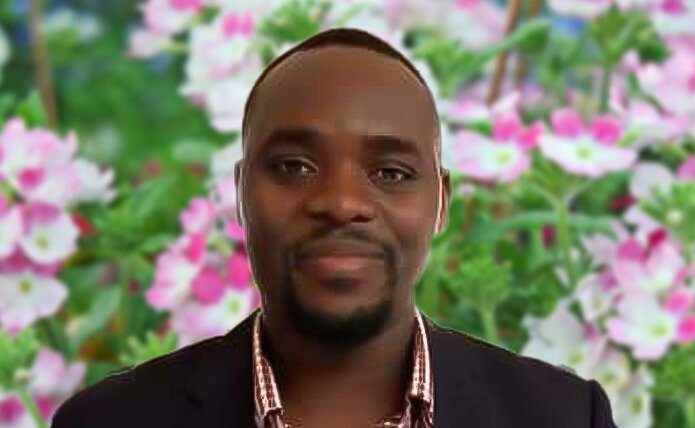
Scholar-Elect Deus Kansiime on his work to put Ugandaunderground writers on the map and under the spotlight
It is our duty to look out for those writers who don’t make it through to the mainstream.
Deus Kansiime
Deus Kansiime [2022] became fascinated as an undergraduate student in Uganda by the gap between the literature he was being taught and the literary texts that had currency on the Ugandan cultural scene. These texts were produced by an emerging generation of writers about whom his university professors knew very little about or had very little interest in.
Yet for Deus these writers represented the most vibrant literary ecosystem and resonated with their contemporaries. They were the writers dominating shortlists of literary prizes in the region. They associated themselves with non-academic, non-commercial literary organisations or LINGOs.
Deus’ PhD in English, which he begins in the autumn, will explore the underbelly of the network of literary value in Africa. By theorising literary activism in a LINGO framework, he aims to inform publishers, literary award organisations, writers and academics about the emerging literary enterprise in Africa and to demonstrate how the LINGO framework is essential in reconfiguring cultural discourses and creating new spaces for free expression.
Childhood
Deus was born in Bushenyi District in western Uganda. His father is a geography and religious studies teacher and headed two schools and his mother was a midwife and later ran a shop. He describes himself as a talkative, playful student in primary school, but says he became more reserved and more interested in reading in secondary school.
As the son of teachers, he had always been surrounded by books and he often found himself in the library. “I was interested in anything I could get my hands on, but particularly books with stories,” he says. That included English translations of oral literature, such as Ishe-Katabazi’s stories, as well as Shakespeare plays which he referred to for words that interested him. At school, he leant towards English and history. And when it came to extracurricular activities, he took part in the debate club and was part of the team for the annual school magazine.
As secondary school ended, Deus decided to leave a state-sponsored business administration course and convinced his father to pay his tuition to study English at Makerere University.
Literature
The three-year course broadened his understanding of what literature is. “I got to understand that literature is beyond what is taught in the classroom and what is published in the journals I knew,” he says.
This he absorbed from the underground literature movements that met at Uganda’s National Theatre which was within walking distance of his campus. “The literature was more alive and more connected to the audiences outside school and official spaces,” he adds. “It was the literature of the streets and different to what I was used to in class.”
His interest in this burgeoning movement was in direct contrast to the literature he studied at university, which included the classics of post-colonial African literature, from Wole Soyinka to Ngugi wa Thiong’o.
While he was studying Deus became part of a poetry society. Members wrote and discussed their writing – both poetry and fiction – and decided to publish collections of work by new writers. Deus became the society’s first publishing director. His job was centred on design, publishing policy, training writers and organising writing competitions. The group spanned a vast range of different opinions, from Africanists, those who thought it should be more political and those who thought it should be just about poetry and fiction to very conservative members who, for instance, didn’t want to publish poetry by LGBTQ+ people. There were many heated debates.
The organisation now publishes several titles, mainly online. “We were learning on the job,” says Deus, adding that the aim was to give mainly young writers a platform where people could read their work. There was a lot of experimentation with form and themes. For instance, instead of the usual mainstream topics of post colonialism and empire, many writers wrote about life and love, which is considered unorthodox and unserious by mainstream publishers.
Deus accuses Western publishers of being “obsessed” with postcolonial discussions and says that makes it difficult for younger generations of writers to get heard. “It is our duty to look out for those writers who don’t make it through to the mainstream,” he says “It’s a generational issue. A different generation is coming up which thinks that the postcolonial narrative is not accommodating them.”
Postgraduate studies
After finishing his undergraduate studies, Deus began a master’s. He proposed doing his master’s dissertation on the underground writers, but it was difficult to find someone who would supervise it as, he says, the majority of lecturers don’t know what is happening on the streets of Kampala. Instead he focused on the depiction of social identity in some Ugandan novels.
Deus decided that for his PhD he would need to move away from Makerere University and experience another country. He knew about Gates Cambridge and about the work being done in Cambridge so he applied.
His PhD will explore the unique form of literary activism that the underground writers he has been championing. He is interested in how literary activism differs in different regions. In Anglophone Africa, he says, literary activists are not necessarily defined by their focus on particular themes or their ideological bias, but may be more linked by the era they represent, by their move away from postcolonialism or the kind of educational publishing which mainstream publishers promote and by the fact that they do not rely on traditional institutions such as the British Council or the approbation of universities.
He says: “The best literary debates are not happening in the classroom but outside it. That is where the excitement is. I would be a bad student if I did not draw attention to that fact.”












